We are pleased to announce the first part of a very special blog series. In the next weeks, we will publish four articles on Taylor Swift and philosophy, each containing an excerpt from the recently published book ‘Taylor Swift and Philosophy: Essays from the Tortured Philosophers Department’ by Catherine M. Robb and Georgie Mills. At the end of the blog series, we will host the accompanying public lecture ‘Taylor Swift and philosophy’ at LSE. In our first article of this series, Catherine M. Robb dives into the question ‘Is Taylor Swift a Philosopher?
After being awarded an honorary doctorate by New York University (NYU) in 2022, Taylor Swift gave a commencement speech. She spoke of the exciting challenge of figuring out who we are and who we want to be: “we are so many things, all the time. And I know it can be really overwhelming figuring out who to be, and when.” We all play different roles, and our identity is not defined by just one of them. Taylor, for example, is not only a singer and songwriter, but also a director, actress and celebrity.
Many cultural commentators have added the role of “philosopher” to this list. Journalists Kayla Bartsch, Peter M. Juul, and Clare McCarthy have all described Taylor as a philosopher. Philosophy professor Scott Hershovitz has also called her a philosopher of forgiveness, while others have claimed her to have a philosophy of “writing,” “dating” and “music.”
Taylor’s music raises philosophical questions that are worthy of further discussion. But it is a much stronger claim to say that Taylor is, herself, a philosopher. How can we assess whether this is the case?
Life Hacks
One popular assumption about philosophy is that it consists in words of wisdom, guiding principles that provide advice about how to live and what to do. If you’ve ever given anyone life advice— “never go to sleep angry” or “never trust someone who lets you down twice” —then on this definition you are a philosopher.
This way of understanding what philosophy is certainly makes Taylor Swift a philosopher. Beginning with her debut album, Taylor gives us wisdom about how to deal with an uncertain future (“A Place in This World”) and advice against cheating on your partner (“Should’ve Said No”). Fast forward 16 years to the release of Midnights, and advice still features heavily. In “Vigilante Shit” Taylor advises on the best way to take revenge, and in “Mastermind” she explains the role of women as a “pawn in every lover’s game.”
In her NYU speech, Taylor shares a number of “life hacks” that she hopes will be helpful to us “navigating life, love, pressure, choices, shame, hope and friendship.” If we take a “life hack” to be a piece of wisdom about how to live a good life, then Taylor offers us quite a few pieces of philosophical wisdom. She tells us we ought to embrace the mistakes that we’ve made because these often lead to the best things in our lives, and she leaves us with a message of resilience and empowerment: “hard things will happen to us. We will recover. We will learn from it. We will grow more resilient because of it.”
Unsolicited Advice
There is a problem, though, with labelling Taylor as a philosopher in this way. If philosophy just means sharing words of wisdom, then not only is Taylor a philosopher but so is almost everyone else. I’m sure we’ve all been at the receiving end of unsolicited advice given to us by friends and family, co-workers, taxi drivers, people standing in line next to us at the store or coffee-house, or even people sitting next to us on public transport. All these people too would have to count as philosophers. As the philosopher Edward Craig has claimed, understanding philosophy in this way means it is “so broad as to be close to meaningless.” There must be more than this to being a philosopher.
Philosophy is often thought to be about how we critically reflect on and scrutinize our beliefs, figuring out whether they stand the test of time. As philosopher Julian Baggini writes, doing philosophy is not blindly accepting a piece of wisdom, but involves a “systematic investigation of the nature of the world”—this entails providing reasons for our ideas and beliefs that can be “scrutinized, judged, assessed, accepted or rejected.”
It is not enough, then, to just state your life hack: you must also provide a systematic or methodical way of critically reflecting on that life hack, considering more carefully how you arrived at your belief, and providing reasons to support your view. Taylor has given us many different life hacks throughout the years, but does she critically reflect and methodically scrutinize these life hacks, giving us reasons for why we ought to believe them?
Double Standards and Personal Experience
As far as I can tell, Taylor does critically analyse her life hacks, words of wisdom, and ideas. How? By reflecting on her own personal experiences and those of fictional characters. As an example, let’s take Taylor’s analysis of gender stereotypes and discrimination. In her acceptance speech as the first ever recipient of Billboard’s Woman of the Decade award in 2019, Taylor tells us that “people love to explain away a woman’s success.” On its own, this would be a mere nugget of wisdom. But in that same speech, Taylor offers many different personal examples that support her statement: people claimed that her record label, male producer, or male co-writer were the reason for her success, and people accused her of lying about writing her own songs. Ultimately, Swift observed, she was held to higher standards than male artists. In an interview for CBS News in 2019, Taylor gives further support for her claim that women are subjected to double standards: “A man does something, it’s strategic. A woman does the same thing, it’s calculated. A man is allowed to react. A woman can only overreact.”
Throughout her discography, Taylor systematically examines the different aspects and experiences of the discrimination experienced by women—from the perspective of one’s emotions not being taken seriously (“mad woman”), double standards (“The Man”), being cast as a homewrecker (in the folklore love triangle), the difficult tension between being in a steady relationship and pursuing one’s own career (“Midnight Rain”), and the social pressure to have a reputation of being a “good girl” (“Bejeweled”).
Looking at Taylor’s body of work as a whole, we see that her method is to state standard stereotypes that women are subjected to, and at the same time consider how and why they ought to be subverted. For example, in “mad woman” she highlights the typical stereotype that “no one likes a mad woman,” in “Vigilante Shit” it is the fact that “Ladies” are always expected to play nice and “always rise above,” and in “Lavender Haze,” Taylor writes of the idea that women are either thought of as “a one-night” stand or a “wife,” with there being no middle-ground. Yet at the same time, Taylor sings of how these stereotypes ought to be challenged: “If a man talks shit, then I owe him nothing” (“I Did Something Bad”); “I’m so sick of running as fast I can / wondering if I’d get there quicker / if I was a man” (“The Man”); “I’m damned if I do give a damn what people say / No deal, the 1950s shit they want from me” (“Lavender Haze”).
Rather than offering an abstract written discussion exploring the reasons for challenging each stereotype, Taylor provides an account of what it is like to experience these double standards. In “The Man,” Taylor wonders what it would feel like for her if she was not subjected to the double standards thrown at her, and in “Miss Americana and the Heartbreak Prince” she sings about what it feels like for her to be labelled a “bad, bad girl.” Sometimes this reflection is not only personal, but involves other characters: in “the last great american dynasty” Taylor sings of Rebekah’s experiences of being labelled as a mad, chaotic, and sad woman, and in “august” she sings of Augustine’s experiences of being cast as the “other woman.”
As Taylor explains during her Billboard acceptance speech, her albums are an account of how she attempts to subvert the sexist labels put on her: “Whatever they decided I couldn’t do is exactly what I did. Whatever they criticized about me became material for musical satires or inspirational anthems.” What makes this approach powerful is that it does not analyse the sexist stereotypes from an abstract and detached point of view. The harm that these stereotypes have on women is experienced as part of everyday life. The way women challenge these stereotypes is not theoretical but performed by acting in ways that subvert expectations and by questioning the status quo. This is messy, and not something that can always be abstractly and directly explained without emotional weight.
The value of Taylor’s contribution to feminist philosophy, then, is in the way she uses her own personal experiences and fictional characters to explore, challenge, and subvert negative gender stereotypes that have caused harmful discrimination against women. In doing so, Taylor doesn’t merely state a life hack or piece of wisdom. Instead, she critically reflects on and critiques gender stereotypes—systematically.
“But Taylor Swift writes songs,” the skeptic might proclaim, “how can this be philosophy?” For a further discussion of how Taylor’s musical and lyrical reflection might count as being philosophy, see the rest of the chapter—and the other chapters— in Taylor Swift and Philosophy. This chapter is also free to read online.
By Catherine M. Robb
Catherine M Robb is an Assistant Professor of Philosophy at Tilburg University, Netherlands. She has a PhD in Philosophy from the University of Glasgow, and previously worked at the University of Hull before moving to Tilburg in 2018. Her research interests span ethics, metaphysics, aesthetics, phenomenology and the philosophy of music. She is currently working on a project about the philosophy of fame and celebrity.
On Monday 28 October, LSE Philosophy is hosting the public lecture ‘Taylor Swift and philosophy’ with Eline Kuipers (Ruhr University Bochum), King-Ho Leung (King’s College London), Georgie Mills (Tilburg University), Catherine M Robb (Tilburg University) and Jonathan Birch (LSE Philosophy). The event is free and open to all. You can attend in-person or online. More information about the event.










































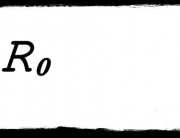

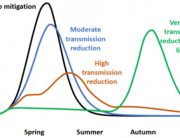



















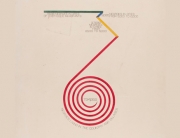






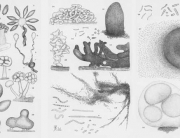





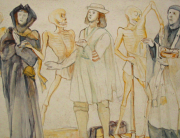





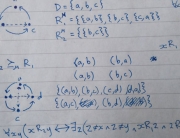





















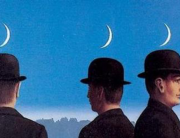



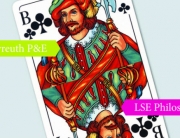


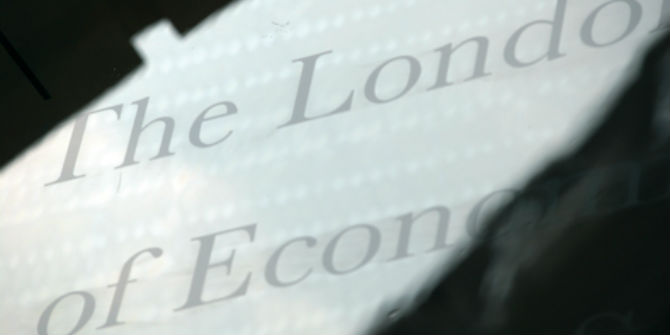











I only discovered this beautiful blog today, but I am glad I did because I have already read a couple of really interesting and insightful articles like this one. I am a fan of philosophy and rational thinking and I love to discuss ideas. Now I will look for more of these engaging articles! My sincere thanks to the author!
Philosophy is widely defined as “systematic study of general and fundamental questions”. Taylor Swift may ponder fundamental questions and mention them in her lyrics but certainly doesn’t study them in systematic way. So, I disagree with the premise, but still, I think it’s interesting question to ask.